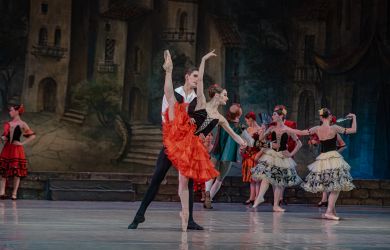
Originally published on metropolis.co.jp on November 2012

“Hey, why don’t you start a print magazine!” are words no one says these days. But Brits tend to be iconoclastic, hard-headed and over-confident in their ideas. Especially when it comes to football.
Alan Gibson, a bilingual 50-year-old DJ from Birmingham, is now five issues into his quarterly, JSoccer, which he publishes from his home city of Kobe. Gibson started the magazine just over a year ago and the first edition was entirely in English. “I just put a few players’ names in kanji on the cover to try and attract the attention of the Japanese,” he admits. “The magazine garnered some nice comments, not least from J. League players themselves, but they wanted to be able to understand it. That meant either starting a JSoccer English School for players—or adding some Japanese content.”
Unsurprisingly, he went for option number two. Following issues contained progressively more Japanese, and the last two were practically bilingual. This led to an increase in page count to maintain the original amount of English content alongside the new Japanese material.
Gibson came to Japan in November 1988 after six years DJing in clubs and major hotels around the world. After ending up in Kansai in the pre-J. League days, he found a team to play for and a team to support. From there, his love for Japanese football led to the launch of his website.
“The idea was to spread the word overseas, but I also wanted to show non-Japanese friends here that the J. League was worth watching,” Gibson recalls. He cites both the website and the mag as non-profit, “i.e. loss-making,” but hopes that more sponsors and sales over the next year will mean breaking even. “It’s definitely a labor of love right now,” he says.
Gibson has covered Japanese football for various publications since the opening J.League game in Tokyo in 1993. “The magazine seemed a logical step forward, publishing downturn notwithstanding,” Gibson says. He was motivated by the fact that many Japanese fans harped on about overseas leagues, while gaikokujin usually followed their home teams. “This game is on their doorstep and is as exciting,” he explains, “and certainly as technically proficient.”
JSoccer usually boasts exclusive photos and interviews, so Gibson is proud of its unique content and point of view. “Players are even asking to be put on the cover to help them get a move abroad,” he laughs, but it’s not that much of a joke. Four of his former cover stars did just that.
Metropolis readers can get PDFs of JSoccer issues 1-5 for just ¥500. Contact alan@jsoccer.com. www.jsoccer.com





